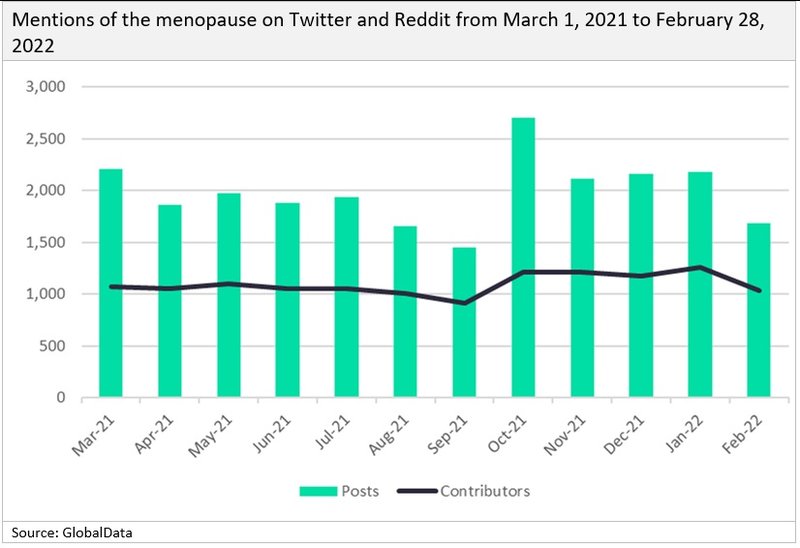Social responsibility: Empowering menopausal women in the workplace
Big cities may rely on historical sights and antique treasures to draw in the tourists, but they can still benefit from infrastructure upgrades. Driving this evolution in the near-future will be tourism, one of the industries most rocked by Covid-19 that is steadily preparing for a post-pandemic world in which people are free to travel again.
In a survey of 3,800 women, run by Newson Health Research and Education, 99% felt that their menopausal—or perimenopausal (the menopausal transition)—symptoms negatively impacted their careers, with over a third saying the impact was significant. Ultimately, without appropriate flexibility and support, many will leave employment as a result of these symptoms.
Although menopause is an inevitable period in nearly every woman’s life, the subject has historically been taboo, especially within the workplace. The conversation is slowly shifting, accelerated by growing awareness of women’s health, improved education, and the presence of social media. Between March 2021 and March 2022, menopause was mentioned 23,798 times in posts on social media platforms Twitter and Reddit, according to GlobalData’s social media analytics database.
As public opinion on corporate responsibility changes, companies are being held to account for their actions in addressing social issues such as gender equality, and employee health. Employers that neglect to introduce workplace policies to support those suffering from menopausal symptoms may find reduced gender equality on the board level, an increased pay gap, and some may even find themselves taken to court.

Menopausal symptoms harm both physical and mental health
Menopause usually occurs between the ages of 45 and 55, with symptoms lasting between 7 and 14 years, although 1 in 100 women will experience it at an earlier age. Given the aging population in many countries such as the UK and the US, the proportion of women experiencing menopause at this time is growing. The Office of National Statistics (ONS) for the UK found that women of this demographic currently make up 11% of those in employment.
Those experiencing menopause symptoms are susceptible to a variety of negative mental and physical health challenges, which can impact their wellbeing and performance at work. Symptoms can include mood swings brought on by hormonal imbalances, depression, anxiety, cognitive impairment, insomnia, and vasomotor symptoms—commonly known as a ‘hot flash’ or ‘hot flush’.
Workplace menopause policies can help to alleviate the pressure
While steps have been made in other areas of women’s health, such as pregnancy, in workplace policies and regulations, most businesses lack a framework designed to support those experiencing menopause. In the Newson Health Research and Education survey, 60% said their workplace offered no menopause support. For many companies, menopause policies are minimal, stretching to a desktop fan or cool room, and often do not consider the time and healthcare needed to support these workers.
However, there have been some examples of high-profile companies introducing far-reaching policies that aim to educate managers and support women in obtaining healthcare and counseling. For example, Channel 4 launched its menopause policy in 2019, including benefits such as flexible working, medical support, counseling, and paid leave. Kellogg’s announced support for staff experiencing menopause in 2021, including education for management, increasing flexible working, and occupational health support. More recently, in February 2022, UK law firm Freshfields launched a menopause policy setting out support and benefits, including a paid menopause plan and time off for medical appointments.
In particular, the UK is pushing to break the stigma surrounding menopause in the workplace. In February 2022, the UK Menopause Taskforce held its first meeting and aim to ensure coordination across the UK in terms of raising awareness of menopause and improving care and support. Additionally, in October 2021, Wellbeing of Women launched its ‘Menopause Workplace Pledge’ campaign in partnership with HELLO! Magazine and Bupa. Two months later, 400 businesses had signed the pledge, including Sainsbury’s, EE, and Lloyds.
Failure of support leads to gender inequality and damaging working conditions
First and foremost, a lack of support for workers experiencing menopausal symptoms can damage their mental and physical health. However, a lack of workplace menopause policies can also lead to workplace gender inequality, poorer working conditions, and damage to a company’s reputation.
For example, in the UK a growing number of women are taking employers to court for discrimination, citing menopause. Meanwhile, Newson Health’s survey found that 20% of respondents passed on the chance for a promotion because of their symptoms. With many women leaving employment and passing on promotions, gender inequality is greater. Given the age bracket in which many experience menopause symptoms, gender inequality is especially evident within company boards and the pay gap.
Discrimination of women experiencing menopausal symptoms detaches a business from the community it operates in, recruits from, and sells in. Businesses that take steps to promote the inclusion of these workers, will see increased creativity, innovation, employee engagement, and improved decision-making. Furthermore, workers experiencing menopause are more likely to be suffering from mental health illnesses such as depression and anxiety. Employers that fail to provide healthy working conditions that ensure the social, mental, and physical wellbeing of their employees face reputational damage and legal ramifications.
With ESG continuing to drive strategic and operational decisions for corporate boards, companies must address these social issues or risk losing stakeholder and public support. In the future, policies that support workers experiencing menopausal symptoms will play a part in differentiating winners and losers in every sector.
Main image credit: insta_photos / Shutterstock
BACK TO TOP
COMMENT